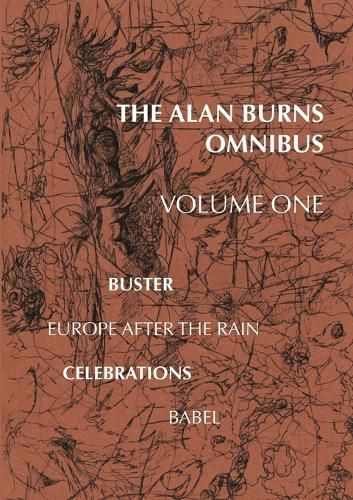Readings Newsletter
Become a Readings Member to make your shopping experience even easier.
Sign in or sign up for free!
You’re not far away from qualifying for FREE standard shipping within Australia
You’ve qualified for FREE standard shipping within Australia
The cart is loading…






This title is printed to order. This book may have been self-published. If so, we cannot guarantee the quality of the content. In the main most books will have gone through the editing process however some may not. We therefore suggest that you be aware of this before ordering this book. If in doubt check either the author or publisher’s details as we are unable to accept any returns unless they are faulty. Please contact us if you have any questions.
Alan Burns was an important voice in a group of experimental writers who came to the fore in Great Britain in the post-World War II era. He worked in multiple genres–essays, interviews, drama, non-fiction, and short fiction–however, his reputation is based primarily on his eight novels, the first four of which are collected in this volume. In Buster, Burns recounts the childhood and maturation of Dan Graveson, a middle-class boy who experiences the death of his mother and older brother at a young age and who wanders from one undertaking and profession to another. Europe After the Rain moves into a surrealist aesthetic, one in which non sequiturs, the absence of rational motivation, and surprising juxtapositions predominate. Celebrations is the first of the cut-up novels: Burns visited used bookstores, purchased good junk fiction, searched for cliches and folded the pages or cut trenchant phrases and sentences out and reassembled them on a drafting table. The result, he commented, was a wonderful fragmentation, a chaos of language in which I can find new connections and images of language . In Babel, this technique is taken to an extreme: the novel has no continuous narrative thread and no chapters; pages are arranged in blocks of text separated by white space, and in some cases the text appears to be arranged in newspaper columns or like a concrete poem, with lines that can be read horizontally or vertically. These four novels showcase the inventive and exciting prose innovations of one of Britain’s most daring novelists.
INTRODUCTION BY DAVID W. MADDEN. CONTAINS BUSTER, EUROPE AFTER THE RAIN, CELEBRATIONS, BABEL, AND THE STORY ‘WONDERLAND’.
$9.00 standard shipping within Australia
FREE standard shipping within Australia for orders over $100.00
Express & International shipping calculated at checkout
This title is printed to order. This book may have been self-published. If so, we cannot guarantee the quality of the content. In the main most books will have gone through the editing process however some may not. We therefore suggest that you be aware of this before ordering this book. If in doubt check either the author or publisher’s details as we are unable to accept any returns unless they are faulty. Please contact us if you have any questions.
Alan Burns was an important voice in a group of experimental writers who came to the fore in Great Britain in the post-World War II era. He worked in multiple genres–essays, interviews, drama, non-fiction, and short fiction–however, his reputation is based primarily on his eight novels, the first four of which are collected in this volume. In Buster, Burns recounts the childhood and maturation of Dan Graveson, a middle-class boy who experiences the death of his mother and older brother at a young age and who wanders from one undertaking and profession to another. Europe After the Rain moves into a surrealist aesthetic, one in which non sequiturs, the absence of rational motivation, and surprising juxtapositions predominate. Celebrations is the first of the cut-up novels: Burns visited used bookstores, purchased good junk fiction, searched for cliches and folded the pages or cut trenchant phrases and sentences out and reassembled them on a drafting table. The result, he commented, was a wonderful fragmentation, a chaos of language in which I can find new connections and images of language . In Babel, this technique is taken to an extreme: the novel has no continuous narrative thread and no chapters; pages are arranged in blocks of text separated by white space, and in some cases the text appears to be arranged in newspaper columns or like a concrete poem, with lines that can be read horizontally or vertically. These four novels showcase the inventive and exciting prose innovations of one of Britain’s most daring novelists.
INTRODUCTION BY DAVID W. MADDEN. CONTAINS BUSTER, EUROPE AFTER THE RAIN, CELEBRATIONS, BABEL, AND THE STORY ‘WONDERLAND’.